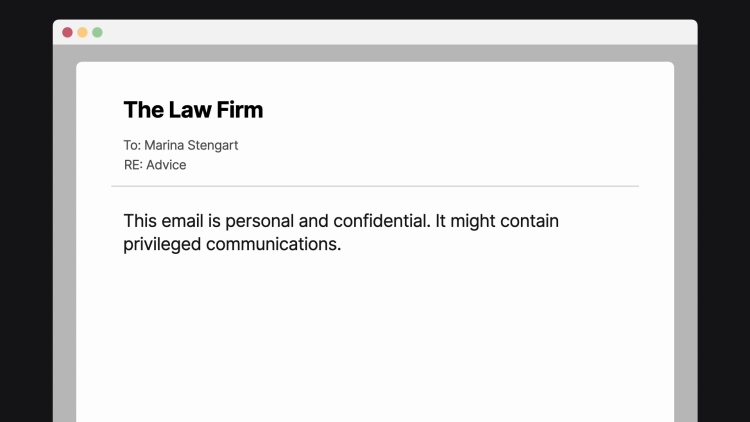Stengart v. Loving Care Agency, Inc.
New Jersey Supreme Court
201 N.J. 300, 990 A.2d 650 (2010)

- Written by Sean Carroll, JD
Facts
Marina Stengart (plaintiff) worked for Loving Care Agency, Inc. (Loving Care) (defendant). Loving Care provided a laptop for Stengart to use for work-related purposes. Loving Care’s electronic-communications policy permitted occasional personal email use. The policy also stated that Loving Care had the right to access “all matters on the company’s media systems and services.” The policy did not address whether this right applied to personal email use. Stengart used her personal, password-protected email account on the company laptop to communicate with her lawyer. Stengart did not save her personal-email password on the laptop. After Stengart left the company, she filed an employment-discrimination case against Loving Care. Stengart had returned the laptop to Loving Care prior to her departure. The emails that Stengart had sent to her lawyer were stored on the laptop. Loving Care accessed Stengart’s emails and used content from the emails, including those Stengart sent to her lawyer, during discovery. Stengart filed a motion to compel Loving Care to return and disregard all emails between Stengart and her lawyer that were subject to the attorney-client privilege. Loving Care argued that Stengart’s agreeing to the company’s electronic-communications policy waived her right to the attorney-client privilege. The trial court agreed and found in favor of Loving Care. The appellate court reversed. Loving Care appealed, arguing that Stengart had no expectation of privacy while using the company laptop.
Rule of Law
Issue
Holding and Reasoning (Rabner, C.J.)
What to do next…
Here's why 907,000 law students have relied on our case briefs:
- Written by law professors and practitioners, not other law students. 47,100 briefs, keyed to 996 casebooks. Top-notch customer support.
- The right amount of information, includes the facts, issues, rule of law, holding and reasoning, and any concurrences and dissents.
- Access in your classes, works on your mobile and tablet. Massive library of related video lessons and high quality multiple-choice questions.
- Easy to use, uniform format for every case brief. Written in plain English, not in legalese. Our briefs summarize and simplify; they don’t just repeat the court’s language.





